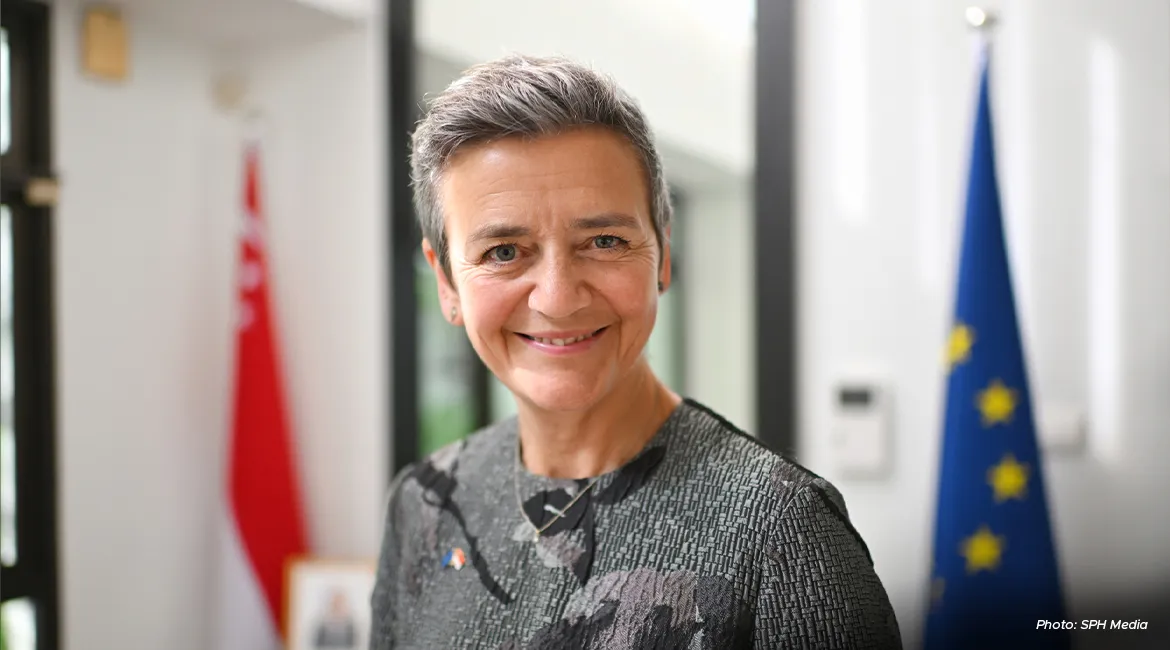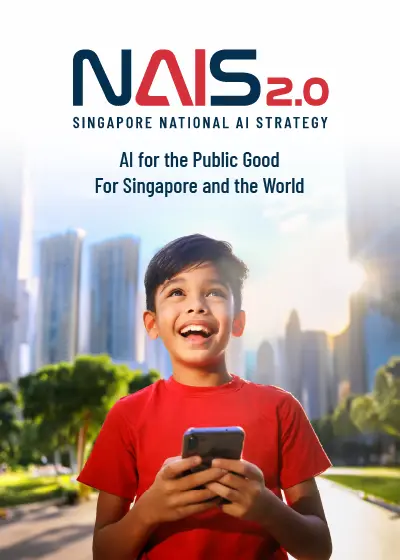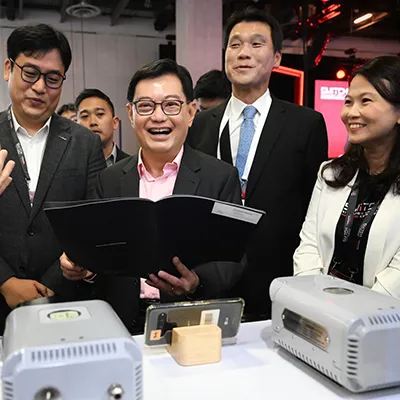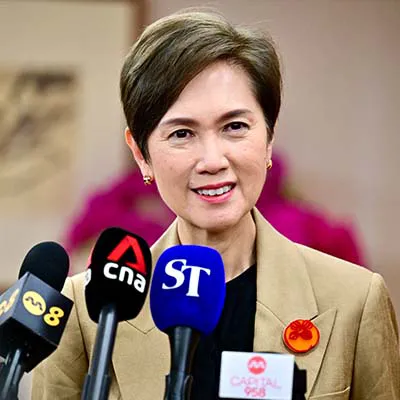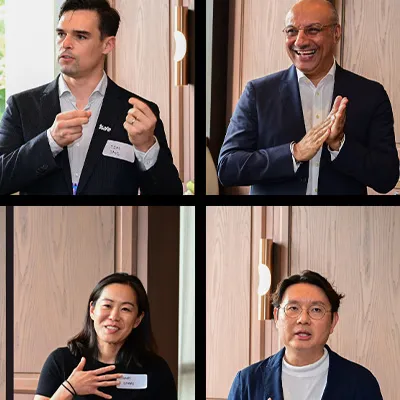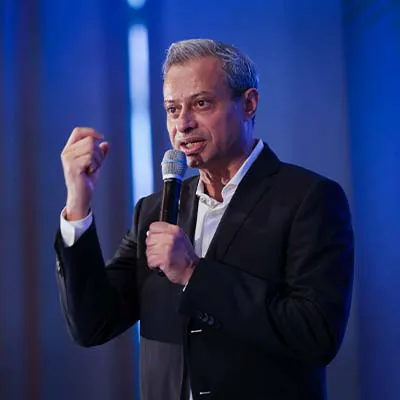Europe wants more cooperation with Singapore on all things digital, including scientific research, technology supply chains, and governance of artificial intelligence (AI), the European Union’s tech chief said on 5 July.
Ms Margrethe Vestager, the executive vice president of the European Commission in charge of implementing the political priority of “A Europe fit for the Digital Age”, was on a three-day visit to Singapore.
“Singapore is a very important destination for research and innovation, very impressive in things that are of high priority for us – semiconductors, AI, and everything from that ecosystem,” she told The Straits Times at the end of the visit, aimed at deepening cooperation on technology.
One area she is keen to explore with Singapore is how to ensure the semiconductor supply chain is secure, she said.
As the United States restricts China’s access to advanced chips and chipmaking tools, countries around the world have been thinking about how to reduce their reliance on China-produced chips, and how to position themselves as attractive “friendshoring” destinations as chipmakers pivot from China.
